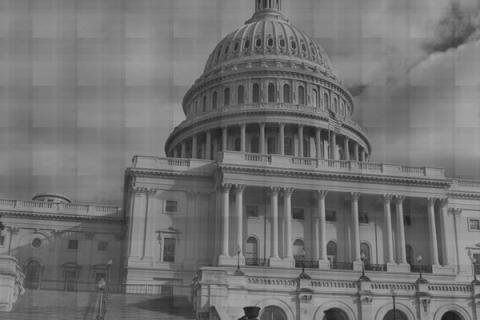
In her new book, Independents Rising, Jacqueline Salit breaks down the successes and failures of over 20 years of the independent political movement. As a 20-year organizer for independent and third party causes and current President of IndependentVoting.org, Salit adds an unmatched depth of knowledge to the current state of post-partisan politics.
IVN asked her about the future of independent organizing and what the rise of independents means for the American political landscape.
Independent Voter Network: In your new book, Independents Rising, you write about independents as an unorganized phenomenon of anti-party preference voters, as well as a "currently" organizing segment. How are both types affecting elections?
Salit: The 40% of Americans who are independents are searching, en masse, for a shift towards post-partisan politics. That fueled independents’ support for Obama in 2008. Their disappointment with his inability to take on partisanship led independents to turn over control of Congress to the GOP in 2010. The 40% are still searching for that culture change. The organized segment of the independent movement is driving structural reforms that scuttle partisan norms in elections and governing. Top Two in California is a leading example of that. CAIVN [Ed. Note: CAIVN is now known as FIVE and Independent Voter Network] and IndependentVoice.org were important forces in that crucial campaign and now the political scene is changing in unconventional ways. And that’s good!
What is the next step for independents interested in organizing?
Salit: It’s pretty straightforward. We create up-from-the-bottom associations of independent voters who come together—not as a party, but as a grassroots movement—to restructure the standard practices of partisan politics. Top Two primary systems, nonpartisan election regulation, having the right to call yourself an independent on a voter registration form. These are the issues which bring independents together, which give us a voice, and which upset the partisan status quo.
How would you respond to those who say independents are overly critical, relishing from an outsider position but not really intending to take action or push for progress?
Salit: I’d say they don’t know what’s going on in the independent movement.
In the last chapter of Independents Rising, you recall Peter Ackerman, founder of Americans Elect, told you "the time for abstract or metaphysical complaints about partisanship and the shortcomings of the political system was over." Why have organizations like Americans Elect failed to garner support, despite a growing number of unsatisfied voters and a focus on action?
Salit: Americans Elect suffered from a kind of tactical schizophrenia. On the one hand, it was intended to spark an anti-establishment uprising, a political revolution. At the same time, it tried to pre-determine and control the outcome. Those two things don’t go together. Ever.
Because independents come from all over the spectrum politically, what can be done to unite or appeal to a majority?
Salit: Independents across the spectrum have a powerful dislike for partisan power. They want to choose the best candidate, not to vote for a party. They want innovation and development, not ideology. I’ve been a part of numerous left/center/right coalitions where political reform is the glue. The parties don’t like that and they’re very aggressive in trying to break up those coalitions.
Libertarian Party candidate Gary Johnson is polling near the threshold to be fairly visible on a national level. As a third party candidate, how can he maximize his role for the benefit of the political outsider movement?
Salit: It’s interesting to me that the Libertarian Party, underfunded and on the fringe, succeeded in doing what American’s Elect, with $35 million and a huge among of mainstream media coverage couldn’t do—namely, attract a high level elected official to run for President as an independent. While I have many disagreements with the Libertarians (and vice versa!), they have been in the trenches for a long time and that is meaningful to independent voters. I hope that Gary Johnson speaks out strongly in support of reforms like Top Two and uses this platform to connect the third parties and independent voters.
Beyond the 2012 election, in what ways will independent voters and the independent movement be affecting the political landscape?
Salit: They are the engine for nonpartisan culture change. That is a long haul, long road objective. But the parties will never lead that. The people, led by independents, are the ones who can.
What do you think a post-partisan America will look like?
Salit: A large, diverse, opinionated, happy family.
--
Independents Rising, published by Palgrave Macmillan, is currently available at Amazon, Barnes & Noble, and other major retailers.
Jacqueline Salit is the President of the Committee for a Unified Independent Party, Inc. (CUIP). A longtime journalist, political strategist and “on the ground” organizer, she is the executive editor of The Neo-Independent magazine.
